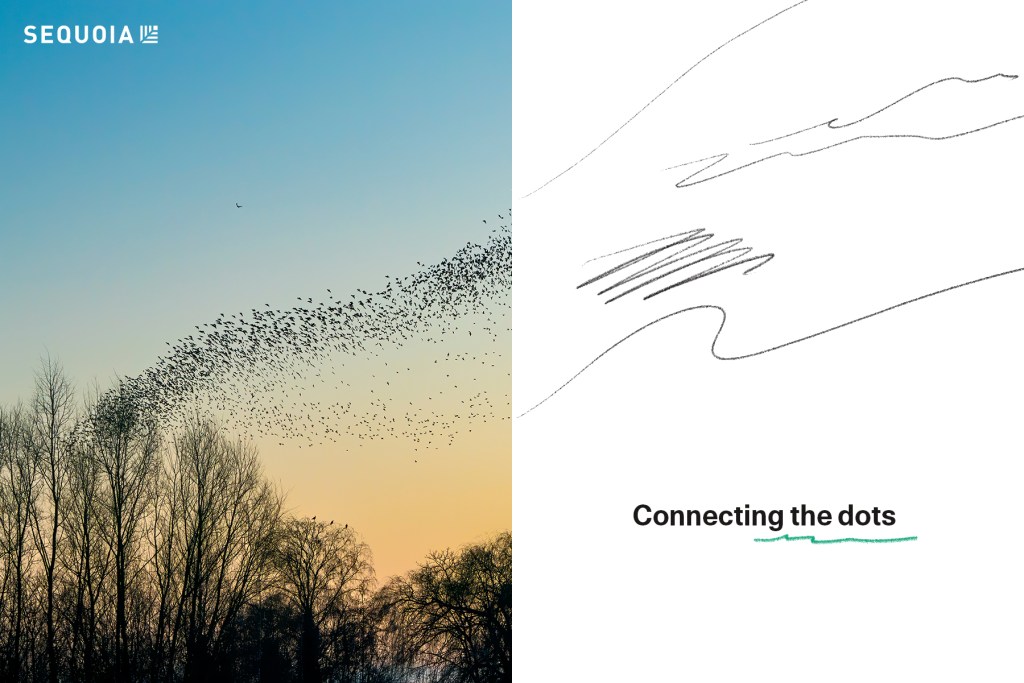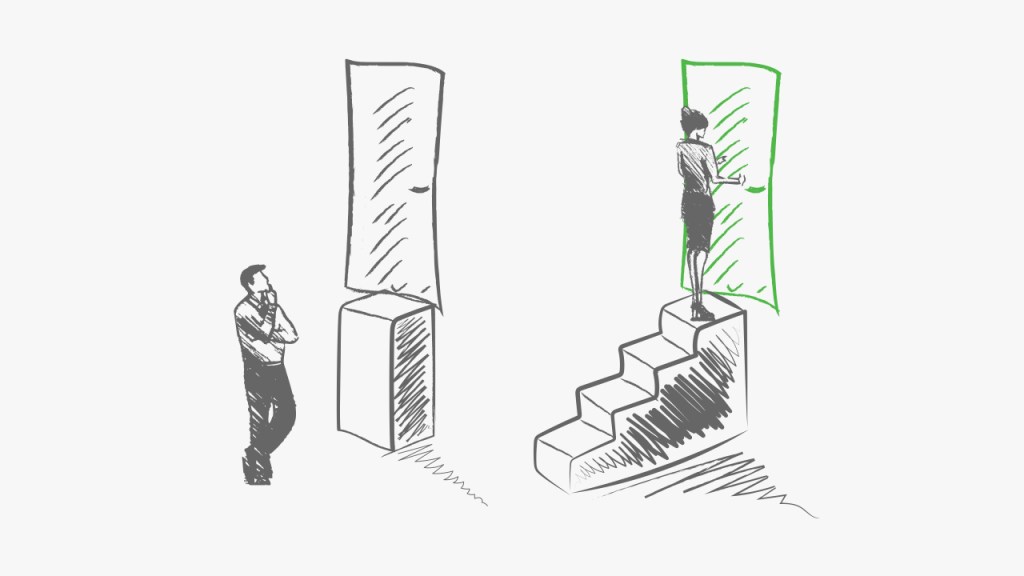Do Something Unproductive
ByGV Ravishankar
PublishedFebruary 24, 2021
A newsletter by Sequoia India MD GV Ravishankar that explores a diverse range of ideas on scaling companies, personal growth, and leading teams.
Wishing you all a fabulous new decade! Why a decade, you may ask?
Airbnb’s CEO Brian Chesky once said: “If you’re trying to win in the next year, and I’m trying to win in the next five years, we both might win. But I’m ultimately going to win.”
I came across this quote again a few weeks ago, and it got me thinking about playing the long game. How would a company with a five year plan fare against a competitor that’s planning for 25 to 50 years? Which one would you think has an advantage? Apply the same to countries and their leadership. Who will be the future superpower? Thinking and planning with a very long-term lens is itself a super power – for individuals, for companies and for nations. For most companies, the first one or two months of the year is typically devoted to planning. It may be worth building on Brian’s words, and making a plan that covers the next decade or two, not just the year ahead.

Do something unproductive

“Do something unproductive, dad!” my 14-year old son chided me recently. Given he sees me on calls and Zoom meetings all day or buried in a book on my Kindle – and seldom finds me lazing or watching TV – he thinks I am this focused workaholic who doesn’t know how to chill. There is some truth in that – but in my defence, I’ve made a more conscious attempt to reform over the last year.
For most of my life, I have had this tremendous FOMO and paranoia of being left behind if I was not always on. At school I wouldn’t dream of missing a single class, even for family events. In college, I had a reputation for flaking on parties and didn’t skip a single class in two years. I stuffed my summer holidays with internships, industry projects or research work. In my current role, my calendar used to get so packed that my colleagues would complain how hard it had become to find a slot despite advance planning, and my heavy travel (pre-COVID of course!) didn’t help this. And worst of all, I used to be proud of this busyness!
The switch flipped for me at a global Sequoia meeting when during a team conversation, our senior partner Michael Moritz told us to “Never confuse travel for work!” Those words really struck home, and during the COVID-19 linked shutdowns, started to ring louder than ever before as I discovered how much more I could accomplish without travel. And now I would like to expand that advice to “Never confuse activity or ’busyness’ for work!”.
In this fast-moving world, companies see employees as assets whose productive time needs to be maximized the same way an airplane needs to be kept flying maximum hours or how a race car needs to minimize time at pitstops. But the fact is that peak performance doesn’t come from being in race mode all the time; downtime is just as important, if not more.
Invert, always Invert
Charlie Munger popularized the mental model of inversion when he said “All I want to know is where I’m going to die, so I’ll never go there”. Inversion refers to solving hard problems by thinking backward. The concept comes to us from German mathematician Carl Gustav Jacob Jacobi, who supposedly solved difficult problems by following a simple strategy – “Invert, always invert”. Inspired by that concept, and by the innocuous comment from my son, I started thinking about how productivity can be improved by understanding what makes us unproductive at work – and what the role of the hours we spend not working have to do with improving productivity. It turns out that unproductive activity, like calories or cholesterol, falls into ‘good’ and ‘bad’ buckets.
Defining unproductivity at work
Inverting the situation by asking what an unproductive day for me looked like, it became easy for me to see it. A day where I am running from one meeting to another, hardly having time to prepare or think, becoming agitated and less present because I am thinking about the next meeting, and spending time on calls and meetings to make some others happy. These things leave me exhausted and dissatisfied and make my day unproductive. A day where I travel six hours each way for a three hour in person meeting in Mumbai is also an unproductive day for me. And a day where I am unable to give my 100% because I am feeling insufficiently rested or lethargic from having not worked out at the gym in a while is also an unproductive day for me. These were the things that I needed to change to become productive.
“It is hard for us and our society to not equate being busy with being productive but if we can learn to measure ourselves less on hours we spend working and more on the output we are able to generate, we would likely have higher performance and more time for a fulfilling life.”
Getting productive by embracing downtime
Instead of obsessing about becoming more productive, I have started making changes and carving out quality down time. Here are some of those things I do now (and will continue to focus more on). I will be the first to point out that this is all work-in-progress and I have significant distance to cover:
- Role of sleep: I have always needed a good eight hours and honestly, I didn’t look very cool back in college going to sleep at 11 PM every day where most people packed it in at 2 AM. But I knew to be productive I needed rest. While society seems to glorify the person who works more and sleeps less, there are more and more conversations these days about prioritizing sleep. The book “Why we sleep” by Mathew Walker is an eye opener when it comes to understanding the importance of sleep and certainly made me feel less guilty about hanging on to my eight hours. While this article isn’t about benefits of sleep, I would rate sleeping well as the #1 productivity hack.
- Thinking time: My mornings now have a block of time, typically 8 am till 930 am, when I try my best not to schedule meetings. This is the time I use to prepare for the day or for any piece of work that require uninterrupted time. Being a morning person, mornings are my most productive hours and I try to use it for the most important things I need to do and for consolidating my thoughts. Microsoft Outlook now has a feature where it can automatically find an hour or two of “focus time” for you on your calendar.
- Working out: Thanks to Covid-19 my workout discipline has improved a lot and sticking to a workout schedule of 4x a week has helped me feel more energetic. On the days I don’t work out, I go for long walks and use the time to catch up on podcasts and audio books. I seem to have more light bulb moments about work during these walks and hence this has become a great contributor to my work outcomes while helping me keep fit!
- Meditation/Playing a sport: Playing a sport (Squash for me!) or meditating (still learning to manage the monkey mind!) has the effect of keeping your mind focused in one place and this has often been refreshing for me. Having a mind that isn’t constantly wavering, even if for a few mins a day or during those few hours of play, has the effect of rebooting the mind in a way where the impact lasts well beyond the activity itself.
- Taking small breaks through the year: One thing I have learnt is the benefit of getting out of your city to a place that calms you down. Three or four short breaks a year can really help you refresh and recharge. Don’t save up days for that one long vacation!
My definition of being productive is to focus on the things that have nothing to do with the activity of working itself. It is hard for us and our society to not equate being busy with being productive but if we can learn to measure ourselves less on hours we spend working and more on the output we are able to generate, we would likely have higher performance and more time for a fulfilling life.
So go on, do something unproductive. You’ll be surprised by the benefits over time!

In the last newsletter, I shared an article I’d written that explores the idea that luck can be generated and is a skill that can be acquired. The second part of this series looks at how you can expand your serendipity sphere, and how the small but intentional choices we make can influence how lucky we get. The third part, published in January, looks at how companies can drive serendipity by making clever design choices in their structure, culture and rituals. If you have any stories on the power of serendipity, please ping me!
Recommended Reads
Here are three articles I read over the last few weeks that I found super impactful.
Stop keeping score, by Harvard professor and Atlantic contributor Arthur C. Brooks, is a timely reminder on how focusing on achievements, accomplishments and checking things off a list are not the source of happiness and that score keeping can make us dependent on external rewards and set us up for dissatisfaction. Brooks also provides some useful pointers on what the right questions to ask are.
Something of Value, by Oaktree Capital management cofounder Howard Marks, one the leading proponents of value investing. In this memo he speaks about how, thanks to the time he spent with his son Andrew, a successful growth investor, during the lockdown he has concluded that the focus on value versus growth doesn’t serve investors well in the fast-changing world we now live in. Through the memo he explores what mindset would best serve value investors over the coming decades.
It’s going to be OK: A founder’s guide to not losing your shit in 2021. This straight-talking blog post by Mad Street Den cofounder Ashwini Asokan rings clear and true, especially after what we all went through last year. Great, actionable tips; point #5, on rewiring your brain, particularly resonated with me!
If you have time for a longer read, here are three books I’d like to recommend.

Power, Sex, Suicide: Mitochondria and the Meaning of Life, by Nick Lane
A super well researched narrative on the evolution of multi-cellular organisms, the history of mitochondria and why and how we age and die!

Open: An Autobiography, by Andre Agassi
I listened to this as an audio book and it was fascinating to learn how by sheer grit and persistence, Andre Agassi kept making himself one of the all-time greats of the game coming from behind many times in his career. Also learnt an intriguing fact that he really never liked playing tennis!

Play Bigger: How Pirates, Dreamers, and Innovators Create and Dominate Markets, by Al Ramadan, Dave Peterson, Christopher Lochhead and Kevin Maney.
A fast read on how to build category leaders and conquering the mind-space of consumers. Recommended read for start-up founders, especially those trying to create a new category.
Do write in at gv@peakxv.com if any of my interests intersect with yours! Click here to read more articles on Sequoia’s blog. I’m also on LinkedIn and Twitter.